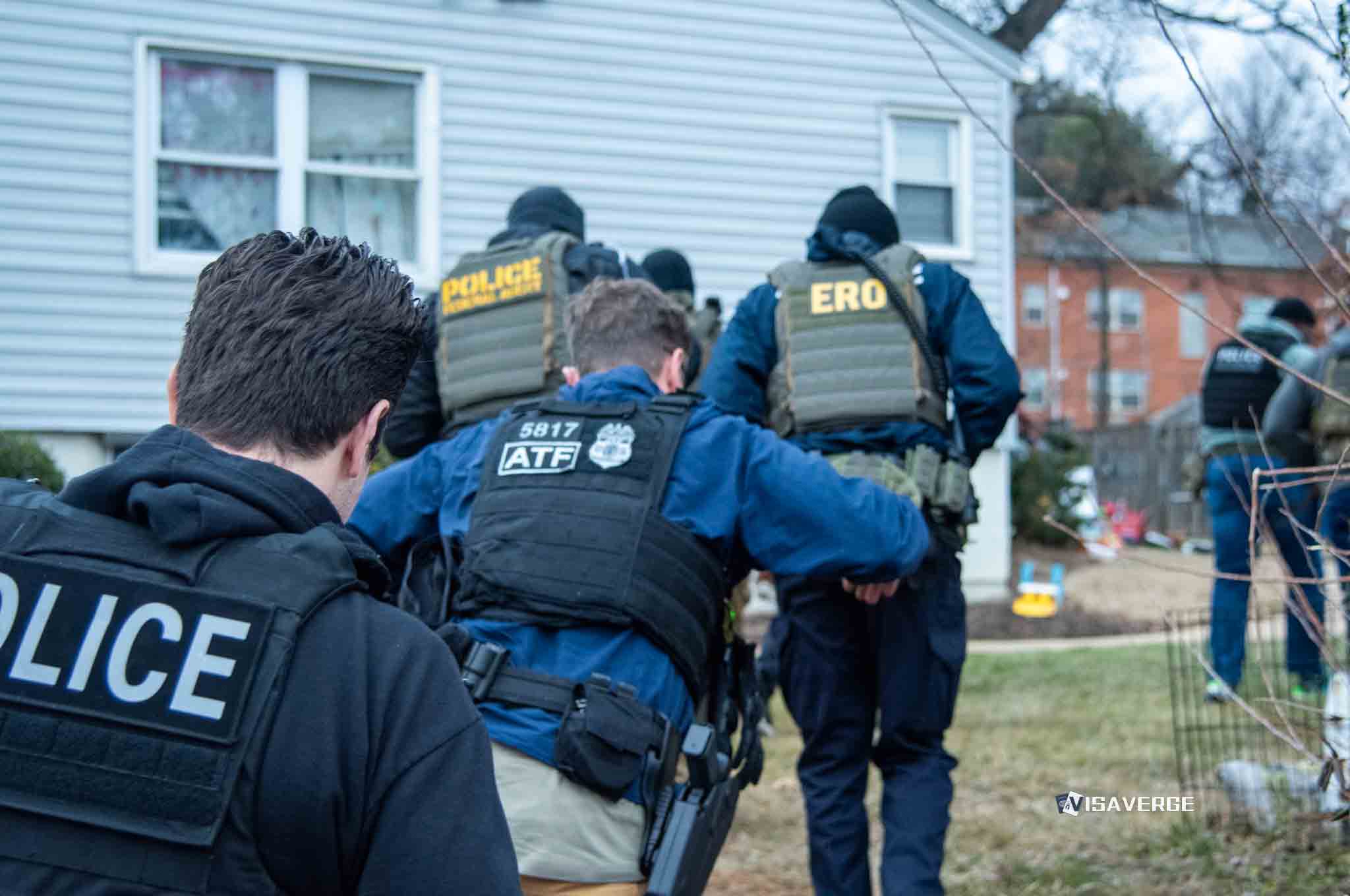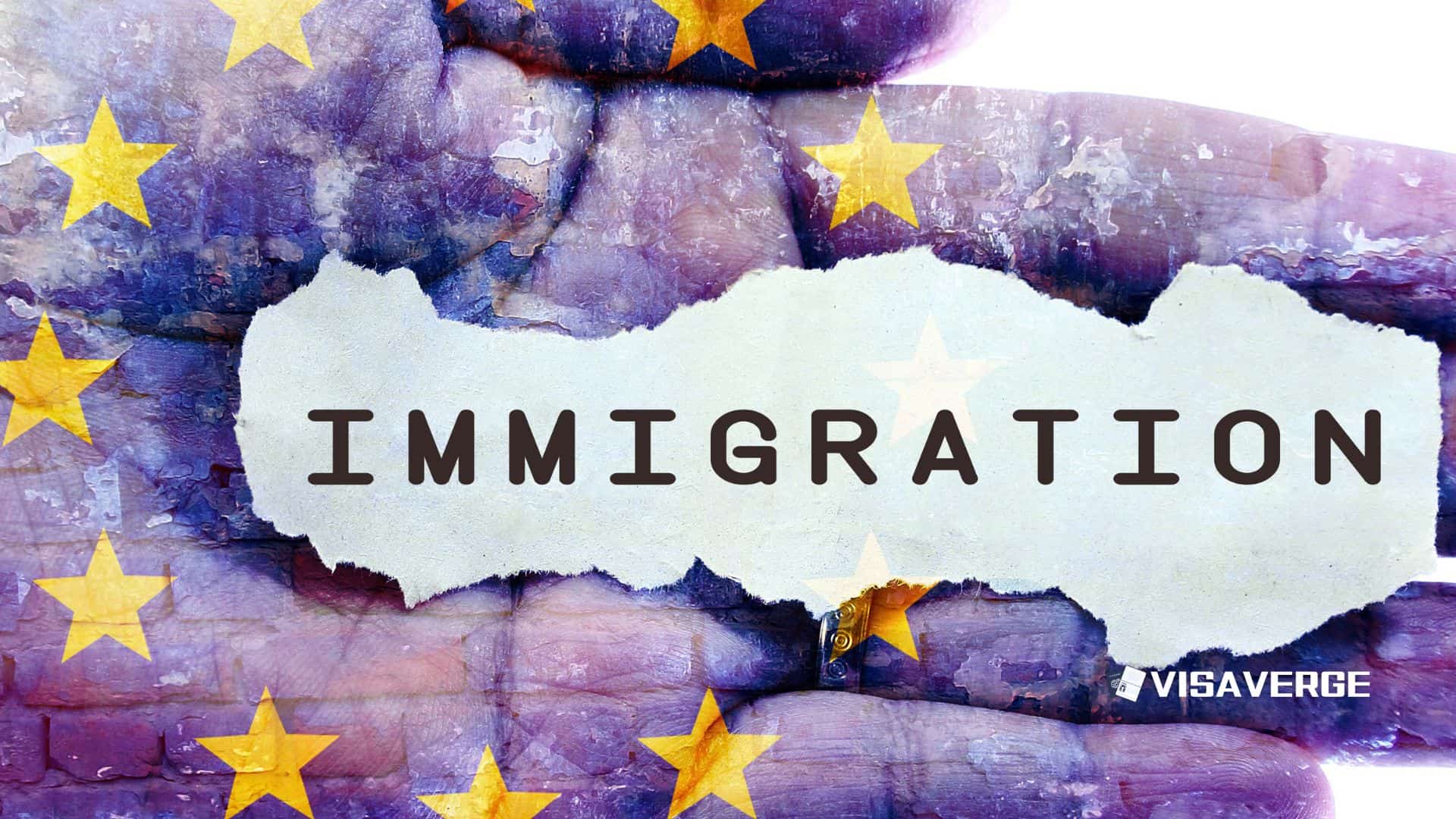Key Takeaways
• Trump Administration aimed for 1 million annual deportations, sparking widespread community fear and legal challenges.
• ICE targeted not only criminals but also long-term residents and mixed-status families, causing increased anxiety and disruption.
• Due process and legal protections slowed mass removals, leading to court backlogs and prolonged uncertainty for affected immigrants.
On a recent episode of “Tiempo with Joe Torres,” the spotlight was on the tough immigration enforcement policies under the Trump Administration. The interview segment, which included leading immigration attorneys such as Brad Glassman and Renata Castro, gave both a legal perspective and real-world stories about how these enforcement strategies impact families and communities. In this in-depth breakdown, we will explore the major themes discussed on the show, explain the legal and personal effects of mass deportations, and share advice for those affected.
A New Push for Mass Deportations

During the discussion, the host and the immigration attorney spoke about how the Trump Administration set its sights on removing as many as 1 million people from the United States 🇺🇸 each year. This number was described as larger than anything seen before and, according to many legal experts, nearly impossible to reach given the number of people and the legal steps involved. As reported by VisaVerge.com, this target led to a sharp rise in immigration enforcement in cities like New York 🇺🇸, with federal officials even warning that they would send more Immigration and Customs Enforcement (ICE) agents to cities where local leaders did not want to cooperate fully with these plans. Tom Homan, who served as the “Border Czar,” said publicly that ICE would “flood” certain cities with agents if needed.
The immigration attorney noted, “This policy has placed an enormous sense of uncertainty and fear in communities, especially among families where members have different legal statuses.” Even individuals who are living in the United States 🇺🇸 legally, or who have U.S. citizen children, have grown anxious about being targeted by these new efforts.
Who Was Targeted? Not Just Criminals
One of the most important points raised in the interview was that, in practice, these efforts did not focus only on people with serious criminal records. Instead, many people swept up in raids were long-term residents, parents of U.S. citizens, or simply individuals whose immigration paperwork was not in order. As the attorney stated, “Despite claims by the administration that many being deported are public safety threats, data shows a growing number have no criminal record.” This meant a lot of families were at risk of being split apart, even if no crime except an immigration violation had occurred.
In neighborhoods with a high number of immigrants, this led to a sense of fear. Many parents worried about what would happen to their children if they were detained or removed. Some were afraid to send their children to school or seek medical help, out of concern that it could put them in the path of immigration authorities.
Changes in Enforcement Methods
A key topic was how the Trump Administration increased cooperation between ICE and local police. This meant more arrests inside the United States 🇺🇸, not just at the border. But more arrests did not always translate into more actual deportations. The law says that before someone can be sent out of the country, they have the right to a hearing in court. This process can take a long time, especially with the immigration courts already facing backlogs.
The attorney shared, “Arrests often outpace removals due to court backlogs and the legal protections built into the system.” This is because people have the right to challenge their removal, ask for asylum, or seek other ways to remain in the country. It is not uncommon for a single case to take months or even years. So, while a headlines may highlight a big increase in arrests, the reality is that many immigrants end up waiting a long time in a stressful and uncertain legal process.
Self-Deportation Campaigns and Public Messaging
Another point raised was the use of self-deportation campaigns by the Department of Homeland Security (DHS). Instead of only relying on arrests and raids, DHS used advertisements and mobile apps urging undocumented immigrants to leave the country on their own. These campaigns were seen by many legal advocates as putting extra pressure on already vulnerable people. They argued that without proper access to an immigration attorney or clear information, some people might leave when they actually have the right to stay under current law.
Legal experts on the show criticized these campaigns as a way to shift the burden and risk onto individuals who often did not know their rights or the details of the complex immigration system. For someone afraid of being arrested or who did not know they had the right to contest their case, these messages could be very stressful and confusing.
Due Process Matters: Legal Rights and Fairness
A major concern discussed on “Tiempo” was about due process. Due process means that everyone has the right to fair treatment by the law, including a hearing before being deported. Under the Trump Administration, changes in policy sometimes pushed for quicker removals, which might skip important legal steps.
The immigration attorney explained, “Due process is at the heart of the U.S. system. Skipping court hearings undermines the rights of everyone in the country.” With the push for mass deportations, ICE sometimes tried to remove people as fast as possible. However, the courts and immigration attorneys stepped in to make sure people could have their cases heard. This slowed down the removals but protected individual rights.
Advice for Immigrant Communities
On the program, the immigration attorney shared some key advice for people who could be targeted by enforcement actions. First and most important: “Do not open your door for ICE agents unless they show a warrant signed by a judge.” Many people do not know this, but unless there is a judge-signed warrant, you do not have to open your door or let ICE in.
Second, people were urged to learn about their rights through updated “Know Your Rights” guides. The New York Civil Liberties Union (NYCLU) and other groups have created easy-to-read guides in many languages. These offer advice on what to do during a stop, how to handle encounters with police or ICE, and whom to contact for help. Seeking advice from a qualified immigration attorney was strongly recommended, as the law is complex and constantly changing. For up-to-date official resources, readers can visit the U.S. Citizenship and Immigration Services (USCIS) website, which offers information on rights and forms.
The Broader Picture: Economic and Community Impact
While the legal details are important, the immigration attorney and other experts also touched on how these policies affect the wider economy. Mass deportations, if carried out even partly, could remove many workers from key industries like construction and hospitality—sectors that are especially important in New York City 🇺🇸. City officials have warned that this could lead to worker shortages, slowdowns in building projects, and less tourism-related business.
This effect reaches beyond just workers themselves. When families are forced apart or people are afraid to go to work or school, it has a ripple effect on whole neighborhoods. Experts on “Tiempo” pointed out that community trust can be damaged, making neighborhoods less safe because people may avoid reporting crime or cooperating with police.
Summary Table: Key Elements from the Program
Here is a simple table explaining some of the most discussed points from “Tiempo with Joe Torres”:
| Issue | Details & Attorney Commentary |
|---|---|
| Administration Goal | Up to 1 million annual deportations; seen as unlikely but causing widespread fear |
| Who Is Targeted | Not just violent criminals; many non-criminals and mixed-status families are affected |
| Enforcement Methods | Expanded ICE-local police cooperation; aggressive enforcement within U.S. cities |
| Due Process Concerns | Arrests often outnumber actual removals due to court backlogs and legal protection rights |
| Public Campaigns | Ads urging voluntary departure; seen as putting pressure on vulnerable populations |
| Community Advice | Learn your rights during encounters with ICE; get help from a trusted immigration attorney |
Human Side of the Law: Stories and Worries
On the show, the immigration attorney spoke of families who have lived in the United States 🇺🇸 for many years, paying taxes and raising American children. These families are now at risk of being split apart, sometimes over a mistake in paperwork or because someone came to the country for a better life and did not have other options. The worry and stress caused by the threat of mass deportations go far beyond simple policy debates. People are now afraid to do everyday things like visit the doctor, go to the grocery store, or even call the police in an emergency.
One parent shared with the show, “We try to live quietly and follow the rules, but every loud knock at the door or strange car parked on the street makes us afraid.” These stories were echoed by the attorney and other guests, who urged policymakers to consider both the legal side and the real-life effects on children and whole communities.
Practical Steps for Those at Risk
Given this climate, the show made several suggestions:
– If approached by ICE, ask to see a judge-signed warrant. Do not sign any papers without fully understanding them or without speaking to an immigration attorney.
– Keep copies of important papers and emergency contact information in a safe place.
– Teach children what to do if their parents are taken away, including whom to call for help.
– Use trusted community organizations for up-to-date information and support.
Looking Ahead: What Comes Next?
While the mass deportation goal set by the Trump Administration has proven almost impossible to fully reach, the impact of these policies has already changed the day-to-day lives of immigrants. Legal experts and advocates continue to fight for fair rights and transparent legal processes. It remains important for everyone to understand their rights and have access to trusted legal help, especially from a qualified immigration attorney.
For those worried about deportation or other immigration troubles, staying informed is the best defense. Official sources like the U.S. Citizenship and Immigration Services (USCIS) provide information about legal help and ways to avoid scams. The situation may change as new policies are debated and new leaders take office, but the advice remains clear: Know your rights, find a trusted lawyer, and do not panic.
Conclusion
The Trump Administration’s intensified push for mass deportations, as discussed on “Tiempo with Joe Torres,” created both legal and personal challenges for immigrants. Far from targeting only criminals, many long-time residents, families, and workers in important industries found themselves at risk. Enforcement methods changed, community trust was shaken, and the need for clear, reliable legal guidance grew. While the laws in the United States 🇺🇸 give everyone the right to due process and a hearing, only those who know their rights and seek help from an experienced immigration attorney have the best chance to remain together as families in their communities.
For more detailed analysis, VisaVerge.com’s investigation reveals the true scope of these changes and their continuing effect on American society. Amid shifting political and legal landscapes, the voice of the immigration attorney remains one of the most important guides for vulnerable communities in times of uncertainty.
Learn Today
Mass Deportations → Large-scale removal of non-citizens from the U.S.; often involves communities beyond just those with criminal records.
Mixed-Status Families → Families where members have different immigration statuses, such as citizens, green card holders, and undocumented members.
Due Process → Legal right ensuring fair treatment, including hearings, before anyone can be removed or deported from the U.S.
ICE (Immigration and Customs Enforcement) → U.S. federal agency responsible for enforcing immigration laws and conducting removals within the country.
Self-Deportation Campaigns → Government efforts encouraging undocumented immigrants to leave the U.S. voluntarily, sometimes through advertising or official communications.
This Article in a Nutshell
“Tiempo with Joe Torres” examined Trump’s push for mass deportations, featuring expert attorneys. Despite aggressive ICE enforcement aiming for 1 million removals, legal backlogs and due process slowed outcomes. Families, even with legal status, faced fear and disruption. Attorneys advise learning rights and seeking reliable legal help to navigate these challenges.
— By VisaVerge.com
Read more:
• Trump Demands 20,000 New DHS Officers for Deportations
• Trump’s Rapid Deportations Now Snaring U.S. Citizens
• Trump Administration Plots Libya Deportations by Military Jet
• U.S. Plans Shocking Migrant Deportations to Libya
• Judge Brian Murphy Blocks Trump’s Guantanamo Deportations













